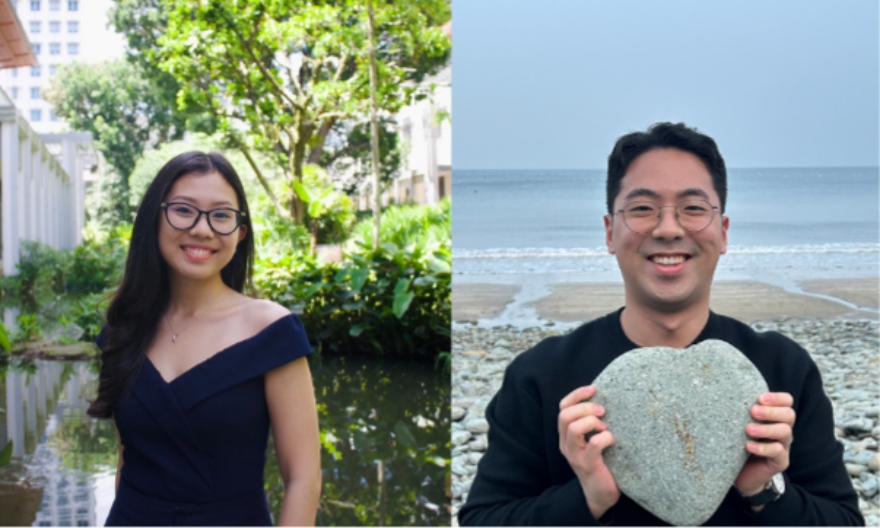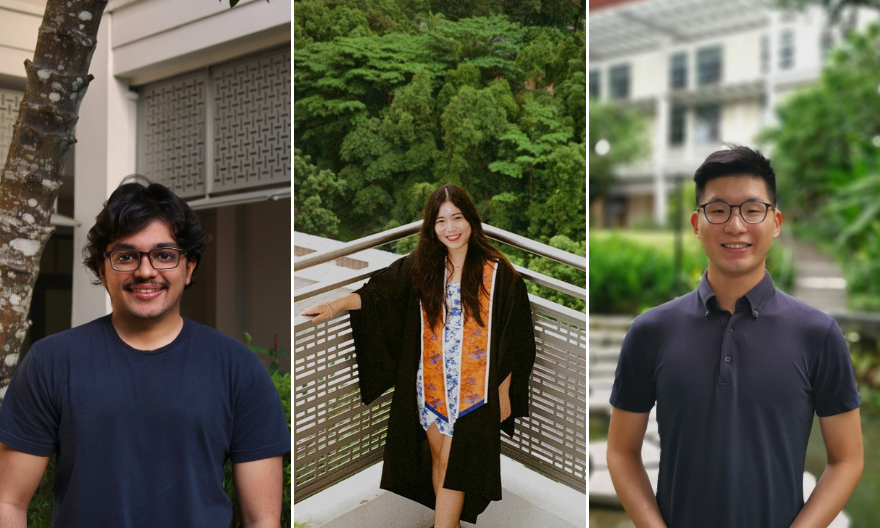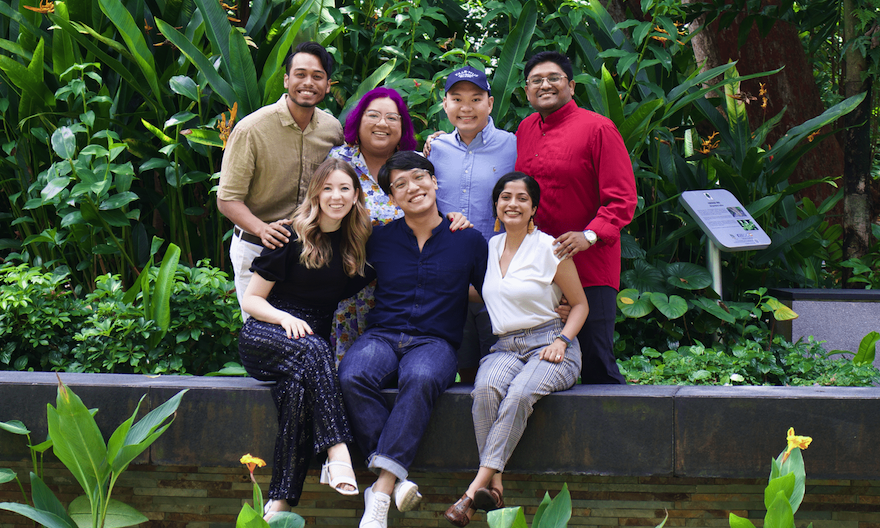Global Workforce: International Alumni Enjoy Living and Working in Singapore
This article is part of a two part series looking at alumni working in foreign environments. Check out the previous piece from Dec 2018 featuring Singapore students working abroad.
Transitioning to the working world can be challenging. Although Yale-NUS College’s international alumni have been living and learning in Singapore for at least four years, starting out in a first job can be a whole different ball game. However, thanks to their experiences at Yale-NUS, many alumni felt equipped to handle the demands of the modern workforce.
“The academic rigor and diversity at Yale-NUS has helped me bridge unapparent connections across different topics and functions,” said Arts and Humanities major Mr David Chia, originally from Malaysia, who now works at Facebook. As a Business Integrity Associate, his main remit is to ensure Facebook and its family of products, like Instagram and WhatsApp, are safe for users and businesses. This can involve anything from working with engineers to improve the precision of machine models, to participating in abstract discussions on human trafficking.
Mr Chia said that the ability to synthesise across complex topics does not come easily to him, and credited the Common Curriculum and his professors for helping develop this skill. “I’ve been able to cluster problems quickly and easily to discover creative solutions,” he said.
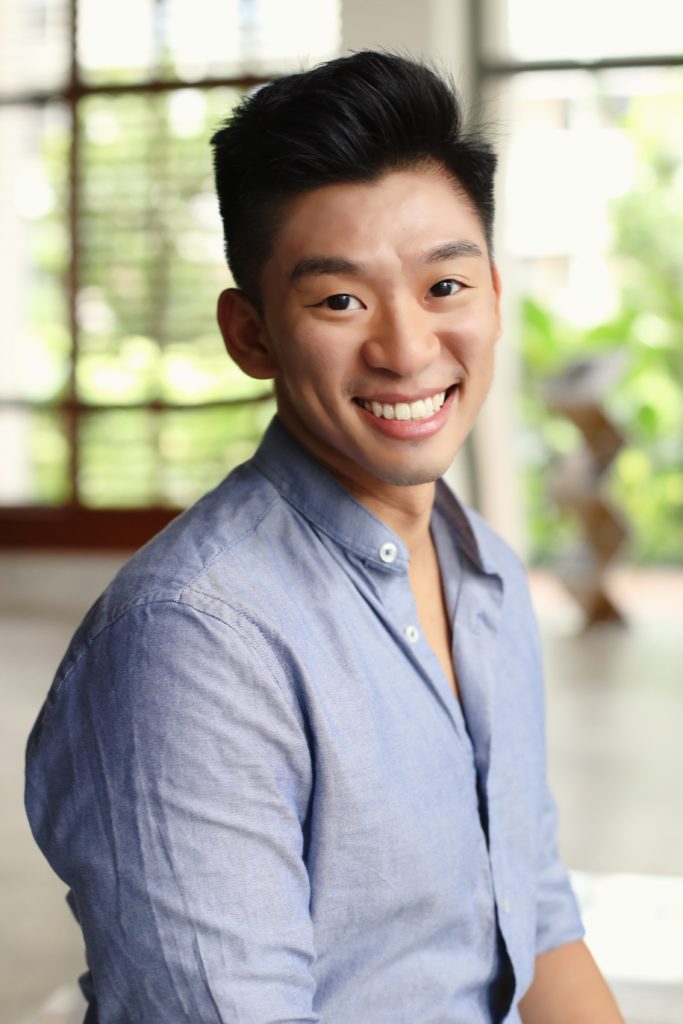 Mr David Chia now works at Facebook as a Business Integrity Associate. Image provided by David Chia.
Mr David Chia now works at Facebook as a Business Integrity Associate. Image provided by David Chia.
On living in Singapore, Mr Chia does find that the city can be a lonely place sometimes, especially compared to the bustling community of Yale-NUS. “I spend around 70% of my waking hours on work,” he said, “so it can be challenging to develop a resilience to loneliness or find a sense of belonging in a country that can be quite isolating.”
Nevertheless, Mr Chia enjoys the multicultural aspects of living in this cosmopolitan city. “This intermingling of local and global is not something easily found in many countries,” he said. “Add in the cheap hawker food, fancy bars, and vibrant museum culture… you’re in one of the best cities in the world.”
“To this day, one of my favourite things is running into people I know,” said Ms Jolanda Nava, an Environmental Studies major. “It’s probably because Singapore is so small, but it makes me feel like I have something like an extended family here – and it always brings a smile to my face.”
Ms Nava is originally from Italy, and for the past year has been employed by Holmusk, a Singapore-based digital therapeutic start-up, as a front end software engineer. She is responsible for creating and maintaining the company’s websites and web applications, which requires taking stock of the whole project and its progress, and writing code – lots of code.
“It could involve adding features, thinking through and reorganising a page’s workflow, or–” she said with a laugh, “–fixing one of the many bugs that inevitably crop up.”
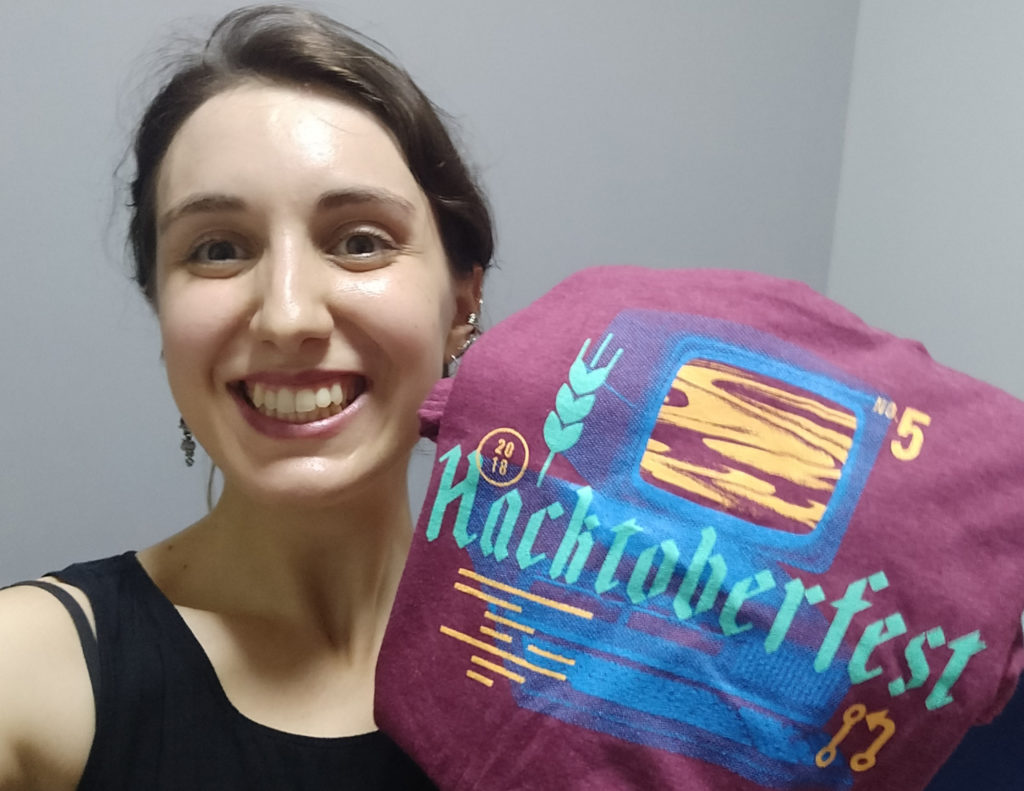 Ms Jolanda Nava enjoys taking part in hackathons. Image provided by Jolanda Nava.
Ms Jolanda Nava enjoys taking part in hackathons. Image provided by Jolanda Nava.
Learning new things is one of Ms Nava’s favourite things about her job. Having started the role with some theoretical knowledge but little practical experience, she has enjoyed not only gaining information and acquiring new skills, but has also grown to appreciate that she still has much more to learn. “Being in a small team I think heightens the sense that there is much more worth discovering within my field, as well as in adjacent, related fields,” she said.
The work culture does present some challenges, however. Ms Nava noticed that people take their jobs very seriously – which, while having positive outcomes, can also result in increased stress and lead to a normalisation of an overtime work culture. “It has been a journey for me try and find a balance between being very driven at my job, and ensuring that I take a break when I need to,” she said.
In other respects, Ms Nava is glad that Yale-NUS has acclimatised her to working in a fast-paced environment. “I am able to learn quickly, to have the curiosity to ask new questions, and to not fear taking the initiative to make something happen if I see that is needed,” she said. Ms Nava also finds the interdisciplinary approach to problem-solving invaluable. “Being able to understand a project from the perspectives of its various fields makes it easier to work with the different teams also on the project, and help in creating a better final product.”
Like Mr Chia and Ms Nava, Ms Payal Lal considers her greatest takeaway from Yale-NUS to be the ability to hold conversations with different types of people. A Psychology major, Ms Lal was hired by local education technology start-up CognaLearn, which uses research on learning science to develop educational software. In her official capacity as a Customer Success Manager, she is in charge of customer retention, which involves her guiding new customers through new software, addressing their questions and ensuring bugs are resolved as efficiently as possible.
“As a part of my job, I interact with many different people from all walks of life, most of whom are more experienced or have a higher level of expertise in their fields,” she said. “Yale-NUS gave me the courage and knowledge to ask them questions, to connect with them about things beyond just my company’s products. This enables me to develop a deeper relationship with my customers, which in turn helps me do my job better.”
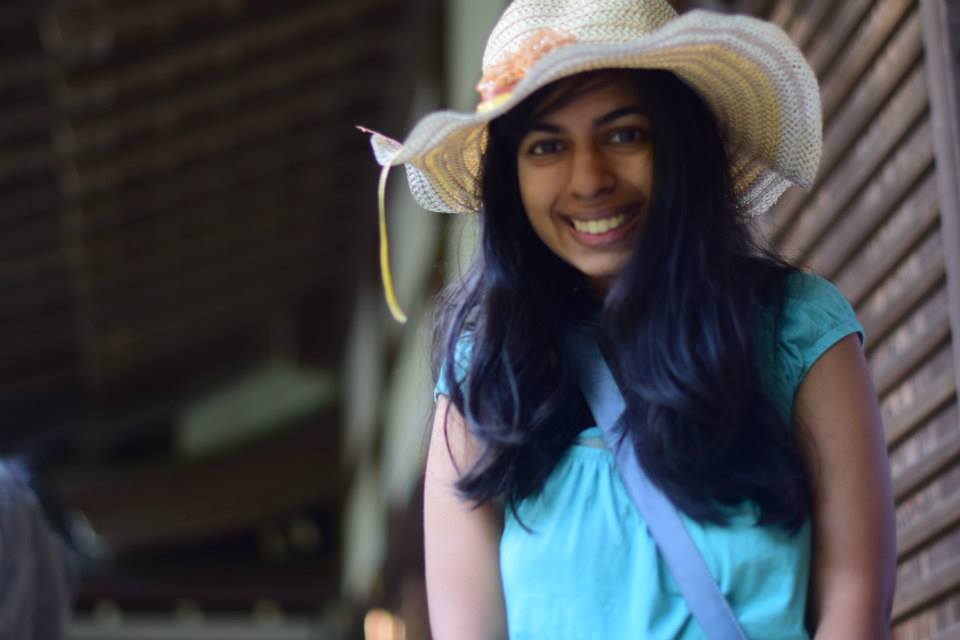 Ms Payal Lal likes working in startups. Image provided by Payal Lal.
Ms Payal Lal likes working in startups. Image provided by Payal Lal.
Ms Lal thrives in the start-up culture. “I have always loved working at start-ups,” she said. “They are small, agile, and they ensure that life is full of adventure every day!” She enjoys working at CognaLearn specifically because of the people she gets to work with: her colleagues are like a big family, and she is inspired by many of her customers, academics who are highly motivated to improve the quality of education in their classrooms.
Ms Lal shares Ms Nava’s struggle to develop a healthy work-life balance. She said that she was used to being preoccupied with schoolwork throughout the day while studying at Yale-NUS, so when she started working, finding that she had free time in the evenings was disorienting. “It took me more than a year after graduating to be able to slow down after work and spend time on things that aren’t necessarily productive, but allow me some space to be creative,” she said.

